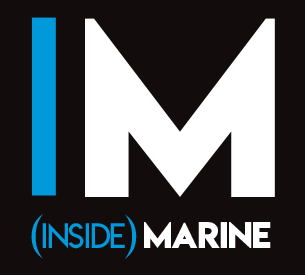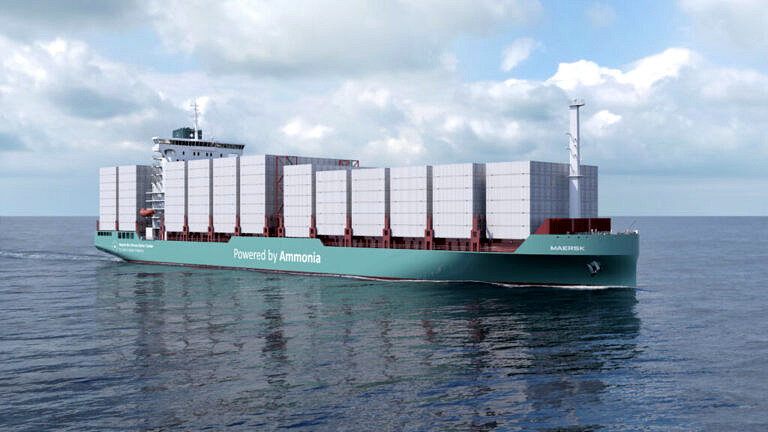A new milestone in ammonia-powered shipping design has been reached with the release of a detailed concept design for a 3,500 TEU ammonia-fuelled container feeder vessel.
This design, developed collaboratively by leading industry partners including Mærsk Mc-Kinney Møller Centre for Zero Carbon Shipping (MMMCZCS), Maersk, Deltamarin, Eltronic FuelTech, Everllence, Lloyd’s Register (LR), The Decarb Hub and the American Bureau of Shipping (ABS), addresses critical technical and safety considerations necessary to qualify ammonia as a viable maritime fuel across the value chain.
The report focuses on two principal questions: the key technical design factors for ammonia-fuelled vessels – such as tank capacity and location of key items – and the essential safety barriers needed to make the vessel safe for the crew. These safety measures include physical separation of ammonia spaces, safe venting distances, physical barriers, drainage systems, water screens and ammonia release management systems (ARMS).
As the ship designer, Deltamarin developed the ammonia safety systems and integrated key safety barriers into the vessel layout, ensuring compliance with strict safety standards while maintaining operational efficiency. This balanced approach was validated through comprehensive hazard identification (HAZID), hazard and operability study (HAZOP), and quantitative risk assessment (QRA), leading to two Approvals in Principle from the American Bureau of Shipping (ABS) and Lloyd’s Register (LR), confirming the design’s technical readiness.
“This study represents a significant step in moving beyond rhetoric and addressing the real, technical questions surrounding ammonia as a marine fuel,” said Evangelos Fragkoulis, Head of Ship Design at MMMCZCS. “Through a transparent, design-driven approach, we have demonstrated that with the right safety measures integrated from the outset, ammonia-fuelled vessels can be a viable and safe pathway toward decarbonising shipping. Our 3,500 TEU feeder design not only offers practical solutions but also helps build confidence in the industry by turning uncertainty into engineering reality. We are very satisfied working with our project partners and happy to have Deltamarin supporting us on the development of the concept design.”
“We are proud to have had the opportunity to support the Mærsk Mc-Kinney Møller Centre for Zero Carbon Shipping on its pathway toward decarbonizing shipping by using ammonia as fuel,” said Peter Kondratjeff, Project Manager and Naval Architect at Deltamarin. “The outstanding collaboration with all project partners resulted in a ship design that provides a high level of safety that was verified through multiple and extensive risk assessments. These profound safety evaluations also served as a successful platform for ship design, fuel system and product development.”
This collaboration highlights the vital role of ship design in helping advance the technical qualification of ammonia as a sustainable marine fuel, identifying key areas that need attention to make sure vessels are safe, efficient, and commercially viable.
You can read more of the latest from the world of Marine here.


